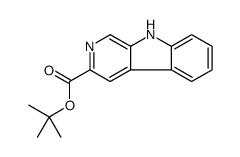Influence of benzodiazepine binding site ligands on fear-conditioned contextual memory.
T M DeLorey, R C Lin, B McBrady, X He, J M Cook, J Lameh, G H Loew
Index: Eur. J. Pharmacol. 426(1-2) , 45-54, (2001)
Full Text: HTML
Abstract
Eight compounds that bind to the benzodiazepine binding site on the gamma-amino butyric acid(A) (GABA(A)) receptor were assessed for their influence on contextual memory, an aspect of memory affected in various cognitive disorders including Alzheimer's disease. Using a Pavlovian fear-conditioning paradigm, each ligand was evaluated in C57Bl/6 mice in regards to its direct affect on contextual memory and whether the ligand could attenuate scopolamine-induced contextual memory impairment. Of the eight ligands tested, one impaired contextual memory (agonist), six attenuated scopolamine-induced contextual memory impairment (inverse agonists), and one antagonized the ability of an inverse agonist to attenuate scopolamine-induced contextual memory impairment. Hence, further demonstrating the bi-directional influence benzodiazepine binding site ligands are able to exert on memory modulation. This study serves as an initial starting point in the development of pharmacological tools to be used in deciphering how GABA(A) receptors influence contextual memory.
Related Compounds
| Structure | Name/CAS No. | Molecular Formula | Articles |
|---|---|---|---|
 |
tert-butyl beta-carboline-3-carboxylate
CAS:93835-05-3 |
C16H16N2O2 |
|
βCCT, an antagonist selective for α(1)GABA(A) receptors, rev...
2013-02-01 [Brain Res. Bull. 91 , 1-7, (2013)] |
|
Apparent pA2 values of benzodiazepine antagonists and partia...
1999-09-01 [J. Pharmacol. Exp. Ther. 290(3) , 1222-9, (1999)] |
|
Cognition-impairing effects of benzodiazepine-type drugs: ro...
2013-03-01 [Pharmacol. Biochem. Behav. 104 , 62-8, (2013)] |
|
Bidirectional effects of benzodiazepine binding site ligands...
2005-07-01 [Psychopharmacology 180(3) , 455-65, (2005)] |
|
The role of α1 and α5 subunit-containing GABAA receptors in ...
2012-04-01 [Behav. Pharmacol. 23(2) , 191-7, (2012)] |